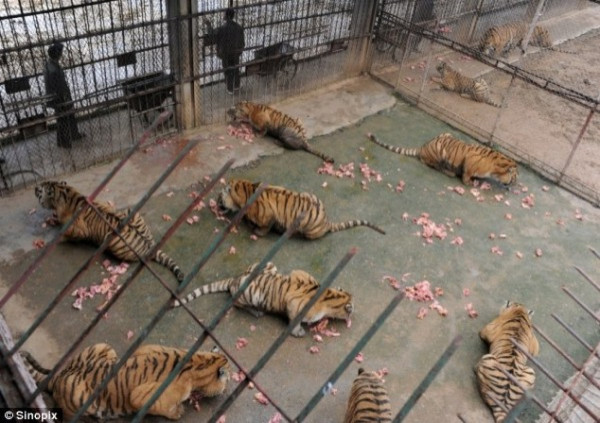India, UK Ask China To Ban ‘Tiger Farms’

India and Great Britain has called on China and other countries, including Thailand, Vietnam and Laos, to close their “tiger farms,” citing that such enterprises ruin conservation efforts designed to save the big cats.
Conservationists have warned that the global wild tiger population, which totaled some 100,000 in 1900, has since shrunk to about 3,000. The animal could be extinct in the wild within two decades, they add.
However, at a meeting of the Convention on International Trade in Endangered Species (CITES) in Geneva, Switzerland, Chinese officials demanded that critics show us the evidence that [tiger farms] encourage poaching of wild tigers.
There is no evidence that farming of tigers threatens wild tigers, Wan Ziming, China's Cites delegate, told the Guardian newspaper of Britain.
The Guardian also reported that China has more than 5,000 tigers in about 20 commercial breeding farms across the country. These expensive facilities are operated by politically-connected businessmen who reportedly breed the cats purely for commercial purposes.
China is a major market for tiger parts -- including the skins and bones -- which are illegally provided by poachers, and now, by these ‘farms.’
Sabri Zain of Traffic, a wildlife conservation campaigner, told the Guardian: People might give a bottle of tiger bone wine to their boss to encourage a promotion, and it's used to sweeten business deals. Public education doesn't work. You can put up billboards of slaughtered tigers, but it won't stop people buying tiger wine -- we've seen that. We need to make it undesirable -- socially unacceptable to drink tiger wine or do business deals with others who give or receive the wine. And we need to provide high-status, tiger-free alternatives.
Critics complain that tiger farms are designed to develop tigers as commercial products, they are not meant for conservation at all.
Last year, at least 200 tiger carcasses were seized from illegal traffickers, Traffic sated.
The Associated Press reported that illegal wildlife trade – which includes tigers, rhinos and animals – is valued at up to $10 billion annually in Southeast Asia.
India, which has already banned ‘tiger tourism,’ has about 1,700 tigers left in the wild, is committed to saving the majestic beasts, having established a number of “tiger protection zones.”
© Copyright IBTimes 2025. All rights reserved.





















